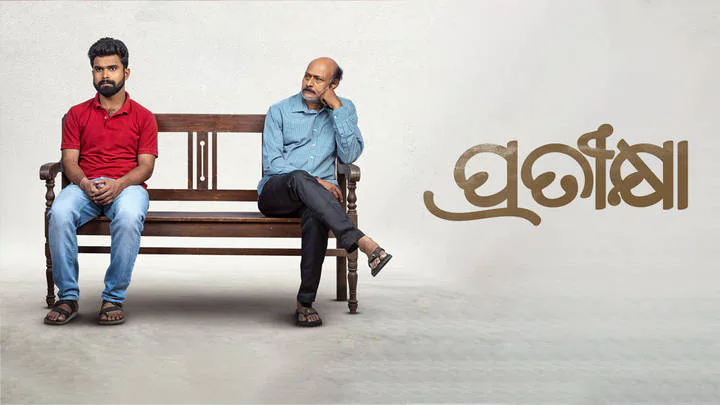In his 2013 film Like Father, Like Son, the Japanese master Koreeda Hirokazu shows us a father, a workaholic architect, who is struggling to bond with his newfound ever-active and playful biological son. The film is a classic story of two children switched at the time of birth. But instead of using this premise to examine how people’s beliefs shape a geopolitical conflict, as in The Other Son (2012), or to depict how circumstances affect the course of someone’s life and the nature of their character, as in Midnight’s Children (2012), Koreeda explores how people learn to form new and meaningful relationships, how a barren land becomes capable of nurturing a forest, and how this process consumes time and requires extraordinary levels of patience.
Anupam Patnaik’s Pratikshya bears thematic similarity to Koreeda’s Like Father, Like Son in the way that both the films have at their centre the father-son relationship, something that’s rarely put under the microscope even though both our societies, Japan and India, are patriarchal, inheritance passing down from a father to his sons. Both the films explore how time is elemental to this father-son relationship: in Like Father, Like Son, time becomes an ingredient in the father’s effort to build a bond, but in Pratikshya, time is an agent, applying pressure as the bond breaks apart, as the son confronts the possibility of his father’s immediate death.
Sanjay, played by Dipanwit Dashmohapatra, is an unemployed graduate in search of a government job, part of what has been described by academics as the “generation nowhere,” a section of educated youth of the country who neither have jobs nor have any particular direction to their lives. Sanjay runs from interview to interview, from one rejection to another, and later when he gathers with his friends, he rants about the widespread presence of bribery and lobbying, practices he doesn’t exactly support of but is willing to participate in as he sees legitimate means become thin.
But his father, Bipin, a government employee, played by Choudhury Jayaprakash Das, is against lobbying and won’t supply him money to bribe his way to a government job. Tension brews between the father and the son, as Bipin uses every opportunity to remind Sanjay of his joblessness and Sanjay turns bitter at every mention of it.
However what lurks in the background is something much more nefarious, the ’emperor of all maladies’ as the doctor-writer Siddharth Mukherjee calls it. In the opening scene itself, we see Bipin feeling pain in his abdomen. As the movie moves forward, the pain and distress only get worse, until it’s revealed that he has pancreatic cancer, which is in the terminal stages, leaving little hope for survival.
The revelation puts Sanjay in a dilemma. As a caring son he wants to do his best to make whatever time his father has in his hands meaningful, even going as far as to sacrifice, sell, his bike to arrange some money. But at the same time, he can’t help but entertain the possibility of getting his father’s job, after his premature death before retirement. The fantasy of that job bringing an end to all his despair and hopelessness is too tempting for Sanjay to ignore.
Also Read – Anupam Kher announces Hindi remake of Odia film ‘Pratikshya’
On screen, Patnaik does a wonderful job of capturing Sanjay’s this inner conflict, which finds external expression in scenes like the one set in the courtyard, where while Sanjay bathes in a hurry he gets into a comic, but explicit, fight with his father, casually bringing up the possibility of his death. In Sanjay, Patnaik shows us a man who turns obsessive and gradually descends into madness. Deepak Kumar’s cinematography and Deven Mishra’s editing help ground the characters and build the conflict.
As Sanjay, Dipanwit, though sometimes repetitive in his acting, channels well the frustration and desperation of the character. As Bipin, Jayaprakash Das plays it both tender and coarse. An embodiment of the truism ‘acting is reacting’, with his skills at improvisation he is so in sync with the other actors that his presence feels effortless. Siddhanta Mahapatra, who appears as a doctor, as the messenger of death, graciously takes off the shoes of the superstar to put on the white coat and do the job.
If Sanjay is spineless and spiteful, then the women of the film stand in complete contrast to him. His girlfriend, Kalyani, played by Barsha Patnaik who brings to the character the authenticity of a girl from Bhubaneswar, is understanding and ever-supportive. His sister, Supriya, who was brave enough to walk out of a marriage that didn’t work, is independent and tolerant, and patient.
The women, Kalyani specifically, encourage Sanjay to open up, as they do themselves. But Sanjay keeps his emotions, his frustration, his affection, bottled up, until it’s too late. Pratikshya, which translates to waiting, is an exploration of the two contradicting sides of this concept: if you don’t wait, become impatient, you risk losing your sanity; but at the same time, you wait too long, you might miss the opportunity.
Though the first half of the film feels a bit stretched and the second half feels a little shrunk, Pratikshya, which is based on a short story titled Bapa by Gourahari Das, with its subtlety and nuance stands confident as a film and a piece of art. In the theatre, after the film, this author met several people with teary eyes and heavy hearts. Most of them are people who have lost a parent, too early perhaps, and feel that there was so much that they couldn’t express. For them, Pratikshya is a reminder that when you have the time, here and now, accept and express love. What more can you expect a film to achieve?
Pratikshya is currently playing in theatres across the state.
